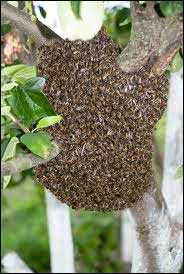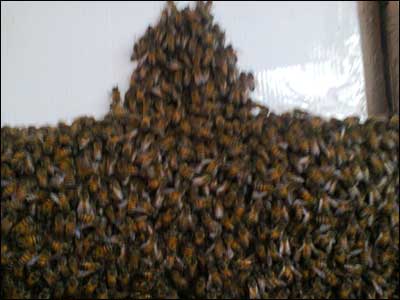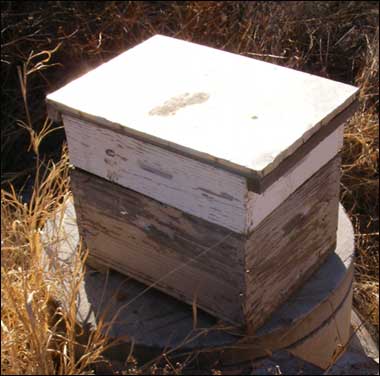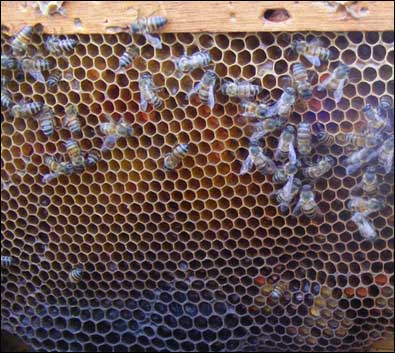 BEE REMOVAL ASSOCIATION OF SOUTH AFRICA
BEE REMOVAL ASSOCIATION OF SOUTH AFRICA

Bee Removal
Aim of BRASA:
Our aim is to ensure standardisation of quality and conduct in the practice of ethical and humane bee removal through out South Africa for the sustainable cohabitation of bees and humans.
What are Bee Removers and why are they necessary?
Bee Removers, quite different from Bee Keepers, remove bees but do not necessarily keep bees. All Bee Removers should have done bee keeping training and most have an interest in keeping bees for themselves, whereas Bee Keepers keep bees for commercial gain. It is not uncommon for Bee Keepers to remove bees in quiet times such as winter to boost their bee colonies, but in summer they tend to work with their bees and have little time to remove bees.
Bees can be extremely difficult to remove and the Bee Remover will typically develop novel techniques for coercing bees out of tight spots as well as spend considerable amounts of money on equipment used exclusively for the safe extraction of bees.
Are you looking for proffesional bee removal?
Bees are not usually a hazard to humans, in many cases it is best to leave the bees where they are. Where bees become a hazard to humans, such as a colony located in a Nursery School, it is necessary to remove the bees. SABRO strongly discourages the use of poisons on bees and all Bee Removers are required to exhaust non-lethal methods of extraction, including finding ways of keeping the bees on site without causing a annoyance to people.
What is the difference between a bee-keeper and a bee-remover?
Bee Remover
Brasa proudly endorses bee removal for your bee removal requirements.




Bee-keeper
Beekeeping in South Africa is a book that anybody who deals with bees will want to have. It covers everything about bees and is a wonderful addition to any training courses you might attend.
Laws relating to handling of honey bees
On 15 November 2013 the South African Department of Agriculture Gazetted the Agricultural Pests Act, 1983: Control Measures relating to Honey bees, which makes some important updates, among which:
Anyone who handles bees in South Africa must:
- be registered with the Department of Agriculture
- keep records of all their hives
- must mark their beehives
- must conduct regular inspections of the bee hives
Often an avid beekeeper is unable to keep more than one or two hives on his property because of the size or location. This means that the beekeeper would need to find alternate, suitable placing for his hives. Should he find a suitable venue, it is best that he and the owner of the land sign an agreement, effectively protecting themselves against any eventuality that may arise.
Here is an example of an agreement between a hive owner and the landowner should the bees be kept elsewhere other than on the property of the beekeeper.
Selling of honey that is delivered as a product of bee keeping requires adherence to specific guidelines for grading.
Guidelines for
Honey Grading and marking
What is Colony Collapse Disorder?
A phenomenon which has not affected Africa yet is the disappearance of bee colonies. To such an extent that it is estimated that the bee population in the United States is down by nearly 40% and the effect on world food production if this trend continues will be profound.
An article in Times Magazine for 19 August 2013 explores the reasons for this die off in bees and the effects of this phenomenon, also what could be done to halt the process.
While the use of pesticides and the general bee parasites can be managed and are part of the regime in Africa, if we do not discover the cause and and find a solution the African food supply, in fact the World food supply is in serious trouble.
Contributors to the disappearance of certain types of bees
Why the proliferation of Cape honeybees (Apis mellifera capensis) is posing a threat to the African Hone bee (Apis millifera scutellata)
The means of reproduction of bees as is commonly understood is that the queen does all the egglaying and the worker bees forage and feed the bee larvae ensuring that they are born and take their place within the colony. However Apis Millifera Capensis or the Cape Honey Bee is slightly different because its females, although not queens can lay eggs which hatch.
Cape Honey bees were brought to the northern parts of South Africa in the early 1990s allowing for the bees to mix and for some of the Cape Honey bees to infiltrate the hive and live as members of the colony while laying their eggs in the same brood comb as the African Honey Bees. These larvae are parasitic as there is no contribution to the hive and as they mature, the females will begin laying eggs within the hive, eventually staring to outnumber the origional occupants causing the dwindling colony to die out or to flee.